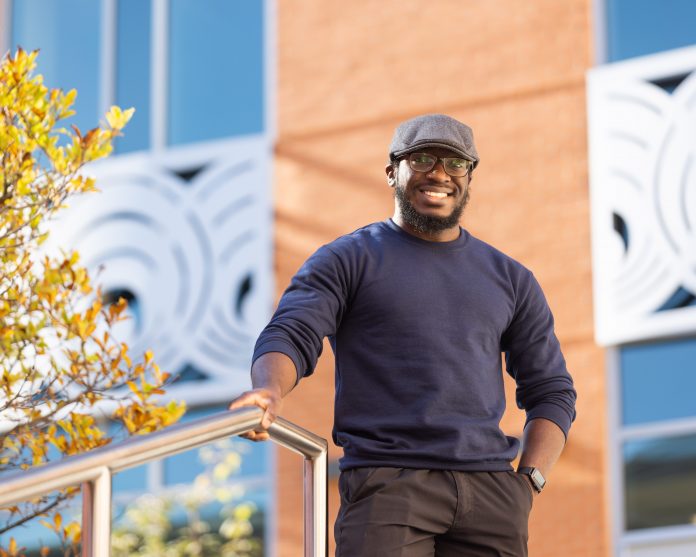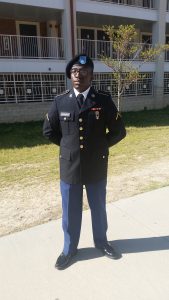After a five-year deployment in the U.S. Army as a signal systems specialist, Ryan Harrison, ’25, knew what he wanted to do after he left the service.
In July 2022, Harrison left the Army to start his academic career at Southern, with aspirations to become a clinical psychologist upon graduation.
A resident of Trumbull, Conn., Harrison, 23, said he was drawn to serving, seeing it as a stepping stone to becoming a better person. Harrison didn’t enjoy high school and had doubts about going to college at that time.
“I had family in the military as well. My uncle was in the military, and so was my brother,” said Harrison. “You can say it was a familial thing.”
During his time in the military, he was able to travel in and around the Asia-Pacific region, including the Philippines, South Korea, and parts of Washington state. He worked in information technology, setting up communications in those areas of the world.
“I worked with radios, satellites, and antennas – basically anything that you can use to communicate with anyone,” said Harrison. “My role was to bring these systems up and break them down, maintain them, and make sure they are running efficiently.”
It was a big step for Harrison at 18, who had never left Connecticut until then. He said that being exposed to new languages and cultures was important to expand his worldview.
“Going from being in my little Trumbull house to literally flying across the planet to Korea was a culture shock,” said Harrison. “I never really engaged with other cultures, and you can say that Connecticut is sort of homogenized.”
Leaving the military, Harrison felt he had achieved what he set out to do in the Army, and felt it was the right time to turn the page. At the time of his leaving, he was granted the rank of sergeant.
“I found what my calling was, made friends, and [used] the benefits of G.I. Bill,” said Harrison. “I proved to myself that I could do things that I couldn’t believe I could do.”
When it came time to deciding on a college, Harrison felt it was time to go home. He was attracted to both the undergraduate and graduate programs he wanted to complete, as well as the benefits of learning in New Haven.
Harrison also found himself in the unique position of being a first-generation student at Southern.
“Telling your parents, who didn’t go to college, that you wanted to pursue a degree field that does not appear to be financially appealing, they get nervous,” said Harrison. “When I took this route of psychology, I have this ten-year plan, so I know what I’m doing and know where I want to go, and how to get to it.”
Upon graduating, Harrison plans to go back to Washington with his degree experience and complete his required clinical hours and apply for the professional certificate.
“A lot of veterans struggle a lot, not just the transition from service to civilian life, but even from the service itself,” said Harrison.
Suicide rates amongst those who have served are at an all-time high since record-keeping began in 2001. In 2021, research found that more than 30,000 active duty personnel and veterans who have served in the military since 9/11 have died by suicide.
“I’ve lost a lot of friends to suicide in the service,” said Harrison. “It took me many years to get over that. It is my goal that more people don’t get lost to that battle.”
Harrison credits Britt Conroy, coordinator of Veterans, Military, and Adult Learner Services, as a role model at the start of his time at Southern.
“Ryan is a very dedicated student and can be found in the veterans center every day studying and working diligently on assignments,” said Conroy. “I am very glad Ryan chose SCSU to pursue his degree in psychology and I look forward to seeing him thrive here.”
Learn more about Southern’s Veterans’ Center and the services it provides here.



